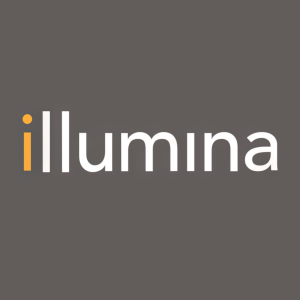Curative Insurance Company Adds GRAIL’s Galleri® Test to Member Benefits for Multi-Cancer Early Detection
The addition of Galleri® is available to Curative health insurance plan members with a
A simple blood draw used in addition to current single-cancer screenings, Galleri can identify DNA shed by cancer cells to help screen for some of the deadliest cancers that don’t have recommended screening today, such as pancreatic, esophageal, ovarian, liver and others. Studies have shown a
“We are excited to be working with GRAIL and proud to offer Curative health plan members the groundbreaking Galleri test that is truly key in helping detect cancer early on for our members,” said Fred Turner, CEO and Co-founder of Curative. “Preventive care is at the core of our health insurance plan, and the Galleri test may allow qualified members to screen for potential cancer early, before any symptoms appear when it may be more easily treated and potentially curable. This is not just about early detection; it's also about empowering our members with the tools to be proactive with their health. Curative's partnership with GRAIL is a testament to our commitment to preventive care and the well-being of our members.”
“Single-cancer screenings play an important role in detecting five specific cancers today. However, nearly
Curative members eligible for Galleri may request the test through an independent telemedicine provider at Galleri.com/curative. Curative’s health insurance plan includes an annual preventive care visit called the Baseline Visit, where members get the opportunity to speak with a Curative clinician about their overall health. In addition, plan members are assigned a personal Healthcare Navigator, who walks members through health plan benefits and onboard members, setting up a roadmap for whole health and showing the member their 24/7 telemedicine plan feature.
Curative’s unique
To learn more about Curative's revolutionary health insurance plan and how it can benefit employers and employees alike, visit https://curative.com/.
*Every Curative member qualifies for the
About Curative
Curative is a leading healthcare services company that has created and launched a first-of-its-kind employer-based health insurance plan with an AM-Best rating of A-. Co-founded by CEO Fred Turner and CTO Isaac Turner (no relation) in 2020, Curative is reengineering health insurance by providing unmatched simplicity and cost transparency with a competitive monthly premium and zero additional costs*. Curative is remaking our healthcare system into one that works for and supports members’ whole health and well-being through every step of their personal health journey. Previously, Curative and its managed medical entities were national leaders bringing COVID-19 testing and vaccine-administration resources to bear in response to the pandemic. For more information on Curative, visit https://curative.com/ or follow us on Facebook, Instagram, Twitter, or LinkedIn.
About GRAIL
GRAIL is a healthcare company whose mission is to detect cancer early, when it can be cured. GRAIL is focused on alleviating the global burden of cancer by developing pioneering technology to detect and identify multiple deadly cancer types early. The company is using the power of next-generation sequencing, population-scale clinical studies, and state-of-the-art computer science and data science to enhance the scientific understanding of cancer biology, and to develop its multi-cancer early detection blood test. GRAIL is headquartered in
For more information, please visit grail.com.
About Galleri®
The Galleri multi-cancer early detection test is a proactive tool in finding cancer early. With a simple blood draw, the Galleri test can identify DNA shed by cancer cells (unique “fingerprints”) to help screen for some of the deadliest cancers that don’t have recommended screening today, such as pancreatic, esophageal, ovarian, liver, and others.** The Galleri test can be used to screen for cancer before a person becomes symptomatic, when cancer may be more easily treated and potentially curable. The Galleri test can indicate the origin of the cancer, giving healthcare providers a roadmap of where to explore further. The Galleri test requires a prescription from a licensed healthcare provider and should be used in addition to recommended cancer screenings such as mammography, colonoscopy, prostate-specific antigen (PSA) test, or cervical cancer screening. It is recommended for people over the age of 50, or those with an elevated risk for cancer due to genetics, family history, environmental exposure, or other risk factors.
For more information about Galleri, visit galleri.com.
**Editor’s note: Sensitivity in study participants with -
Liver/bile duct cancer:
Esophagus cancer
Pancreas cancer:
Ovary cancer:
Important Galleri Safety Information
The Galleri test is recommended for use in adults with an elevated risk for cancer, such as those aged 50 or older. The Galleri test does not detect all cancers and should be used in addition to routine cancer screening tests recommended by a healthcare provider. Galleri is intended to detect cancer signals and predict where in the body the cancer signal is located. Use of Galleri is not recommended in individuals who are pregnant, 21 years old or younger, or undergoing active cancer treatment.
Results should be interpreted by a healthcare provider in the context of medical history, clinical signs and symptoms. A test result of “Cancer Signal Not Detected” does not rule out cancer. A test result of “Cancer Signal Detected” requires confirmatory diagnostic evaluation by medically established procedures (e.g. imaging) to confirm cancer.
If cancer is not confirmed with further testing, it could mean that cancer is not present or testing was insufficient to detect cancer, including due to the cancer being located in a different part of the body. False-positive (a cancer signal detected when cancer is not present) and false-negative (a cancer signal not detected when cancer is present) test results do occur. Rx only.
Laboratory/Test Information
GRAIL’s clinical laboratory is certified under the Clinical Laboratory Improvement Amendments of 1988 (CLIA) and accredited by the College of American Pathologists. The Galleri test was developed, and its performance characteristics were determined by GRAIL. The Galleri test has not been cleared or approved by the
References
- https://www.galleri.com/what-is-galleri/multi-cancer-early-detection
- Klein EA, Richards D, Cohn A, et al. Clinical validation of a targeted methylation-based multi-cancer early detection test using an independent validation set. Ann Oncol. 2021;32(9):1167-1177. Doi: 10.1016/j.annonc.2021.05.806.
- American Cancer Society. Cancer Facts & Figures. 2021. Available at: https://www.cancer.org/content/dam/cancer-org/research/cancer-facts-and-statistics/annual-cancer-facts-and-figures/2021/cancer-facts-and-figures-2021.pdf.
- Schrag D, Beer TM, McDonnell CH, et al. Blood-based tests for multi-cancer early detection (PATHFINDER): a prospective cohort study. Lancet. 2023;402:1251-1260. doi: 10.1016/S0140-6736(23)01700-2.
View source version on businesswire.com: https://www.businesswire.com/news/home/20240201806773/en/
For Curative:
Corporate Communications
David Krawitz
press@curative.com
For GRAIL:
Corporate Communications
Kristen Davis
Cammy Duong
pr@grail.com
Investor Relations
Alex Dobbin
ir@grail.com
Source: GRAIL, LLC






